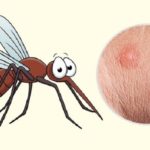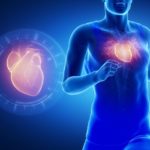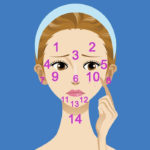**What Role Does Estrogen Play in Women’s Health?**
Estrogen is a crucial hormone for women’s health. It is primarily produced in the ovaries, with smaller amounts synthesized in the adrenal glands and fat cells. During pregnancy, the placenta also produces estrogen.
Estrogen has several key roles in a woman’s body:
– Promotes Uterine Development
Estrogen stimulates the growth of the uterus. It increases the thickness of the uterine lining (endometrium), enhancing its ability to support a fertilized egg and maintain a pregnancy.
– Protects Women’s Intimate Health
Estrogen influences vaginal health by regulating vaginal secretions and maintaining an appropriate pH level, which inhibits the growth of harmful bacteria.
– Impacts Milk Production
Estrogen stimulates the growth of milk ducts in the breasts, preparing the body for breastfeeding after childbirth. However, high doses of estrogen supplements during the postpartum period can inhibit milk production.

Estrogen has a significant impact on women’s health.
– Influences Bone Development
Estrogen plays a role in bone development. During menopause, when estrogen levels drop, women are more prone to experiencing bone and joint problems.
– Maintains Hormonal Balance
Estrogen counteracts androgen, creating a hormonal balance that stabilizes mood and slows down the aging process.
– Protects Cardiovascular Health
Estrogen has a positive impact on cardiovascular health by reducing total cholesterol levels and preventing the progression of cardiovascular diseases.
**7 Signs of Estrogen Deficiency in Women**
The following are indicators that your body’s estrogen levels are significantly declining, leading to potential health issues:
– Changes in Menstrual Cycle
A shorter or irregular menstrual cycle can be a sign of low estrogen. This can cause the uterine lining to thin, affecting menstrual flow.
– Skin and Body Changes
Dull, dry skin with increased wrinkles is a sign of low estrogen. Additionally, belly fat accumulation, sagging breasts, and changes in hip structure are also indicators of estrogen deficiency.

Estrogen deficiency leads to negative effects on a woman’s body.
– Sleep and Mood Disturbances
Low estrogen can impact your mood, leading to irritability, depression, or other psychiatric symptoms. It may also cause sleep problems, including insomnia, difficulty falling asleep, and memory issues.
– Hot Flashes and Night Sweats
Estrogen deficiency can cause hot flashes, particularly in the face, chest, and hands, along with night sweats.
– Bone and Joint Issues
Low estrogen is linked to bone and joint health problems. Women with estrogen deficiency are more susceptible to osteoporosis, back pain, and bone fractures.
– Cardiovascular Concerns
Estrogen plays a role in maintaining cardiovascular health. A decline in estrogen levels increases the risk of cardiovascular diseases and high blood pressure.
– Decreased Libido
Estrogen significantly influences a woman’s libido and arousal. Low estrogen levels can reduce sexual desire and cause vaginal dryness.



































